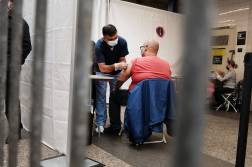Small businesses need continued cybersecurity assistance through pandemic, officials say

Cities struggling to recover from the devastating economic impact of the coronavirus pandemic need to prioritize the cybersecurity of their small- and medium-sized business communities, a panel of cybersecurity officials and experts said during a webinar Tuesday.
Just as state and local agencies that had to move traditional services online rapidly in March, small businesses — many of which may not have needed an online sales presence prior to the pandemic — had to adopt new online marketplaces and digital strategies because of the shift, said Kiersten Todt, managing director of the Cyber Readiness Institute, a nonprofit that offers free tools and resources meant to help smaller companies better secure their corporate networks. Todt said that local governments have a role to play in ensuring that these businesses can safely carry out transactions with city residents, despite not being public entities themselves.
“Whether it’s a small business, local government or state government, you can’t silo any economic entity away from another one. They’re all connected,” Todt said during the webinar, which was hosted by Mastercard.
Technology officials from New York City and Philadelphia agreed with Todt’s assessment, with New York Chief Information Security Officer Geoff Brown noting that the city’s Cyber Command staff, which originally existed to protect city-owned infrastructure, must reflect the actual population of New York City. What that means, Brown said, is that the city’s own cybersecurity literacy and training efforts need to be directed toward the community as much as they are toward city employees.
New York City launched NYC Secure two years ago to allow New Yorkers to download a mobile app that identifies malicious attacks on people’s smartphones without invading their privacy. Moreover, Brown said, the city’s department of economic development has partnered with universities and private organizations to spur an “engine” of cybersecurity workers throughout the city. Simply deploying resources isn’t enough, however, to ensure that people will use them, Philadelphia CIO Mark Wheeler said.
“It’s not just listening,” Wheeler said, “but it has to be a two-way street where you’re demonstrating what you heard or the concerns that are being raised have been incorporated into your approach and part of that solution.”
Wheeler and his team, along with Philadelphia’s Digital Literacy Alliance, helped staff phone lines with trained “digital navigators” — people helping families that lacked digital literacy skills understand digital learning and telehealth — in June as it became clear that broadband was going to be more necessary than ever to the city’s educational and wellness needs.
“Connectivity wasn’t just exacerbating the problem, it was the divide we’ve been trying to confront this whole time,” Wheeler said. “That type of community education is getting out there and we’ll have to focus on it more as we go forward with the program.”




